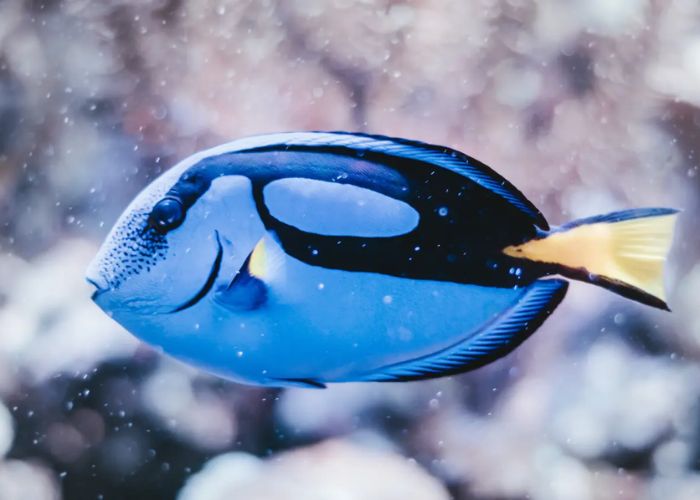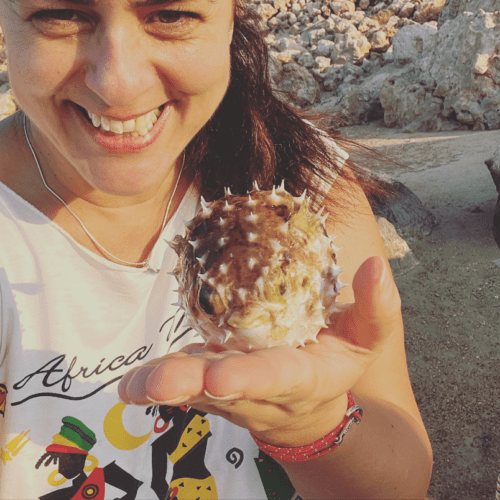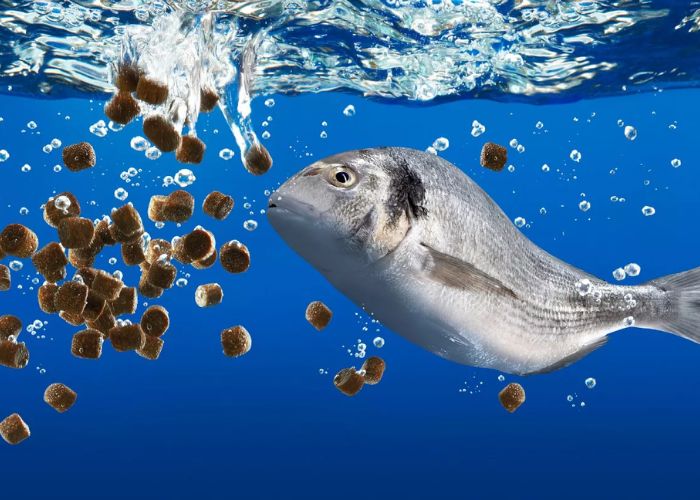People often ask me, “Do fish have feelings?” I’m an ichthyologist who has studied fish behavior and biology for more than 7 years. An important idea among scientists for a long time was that fish don’t feel feelings or pain. But new study is calling this idea into question and suggesting that fish may have much more complex inner lives than was thought before. Read below about “Do Fish Have Feelings? New Research Explores the Emotional Lives of Fish”.
As part of my job, I’ve had the chance to see many types of fish in their natural environments. I’ve seen fish do things that definitely seem to show they are feeling different emotions. For instance, I’ve seen fish get excited when they’re hungry and look stressed when they think they might be eaten. I’ve also seen fish that were close become upset when they were split up.
Anecdotal evidence like this is interesting, but real science proof is needed to show that fish have feelings. The good news is that more and more study supports the idea that fish do have emotions and sensations.
I’ll talk about some of the most interesting new discoveries that are changing how we think about fish’s feelings in this piece. As an ichthyologist, I’ll also talk about what this means for how we see and treat these interesting animals.
Table of Contents
Evidence Fish Experience Pain and Stress
A lot of people thought for a long time that fish couldn’t feel pain because they don’t have the neocortex area of the brain that is thought to process negative stimuli as painful. However, new anatomical studies show that fish do have nociceptors, which are special sense receptors that pick up on unpleasant stimuli, and parts of their brains that are similar to the neocortex in mammals. This shows that they have the parts they need to feel pain.
There is also strong behavioral proof that fish feel pain. In several studies, fish that were shot with painful acids or bee venom had a lot more breathing and moving back and forth, but these behaviors stopped when the fish were given painkillers. In the same way that humans do, this shows that fish respond to painful things on purpose to feel better.
Researchers have also found that fish have a physiological stress reaction that involves higher levels of the hormone cortisol when they are in stressful situations like being caught in a net or being chased by predators. High cortisol levels show that fish, like people and other animals, feel scared and anxious when they are in danger.
Social Bonds and Emotions

People often think of fish as loner and unsociable animals. But now we know that a lot of species form close social ties and act in ways that show they are smart and have complex emotions.
For instance, cleaner wrasse fish keep “cleaning stations” that other species’ “client fish” visit. They pick bugs off of these client fish in a gentle way, which seems to be a good experience for both of them. Cleaners and clients know each other as unique people and get excited when they see each other again after being apart for a while. This means a mental connection, like a friendship.
There are many kinds of fish that are also loving parents. When female three-spined sticklebacks lay eggs, the males carefully watch over and fan their nests. If the eggs go missing, the males look for them furiously and become more hostile toward people who try to get close, which shows that they are upset emotionally.
Some fish are so smart and cooperative that they remind us of Machiavelli. Groupers tell moray eels to work together to catch prey, and coral trout use amazing synchronized dances to get other fish to join them. This shows that fish have complex thinking and talking abilities that help them make social plans.
Insights From Neuroscience
The field of neuroscience studying how fish think and feel is growing very quickly. Zebrafish are being studied a lot right now because their genes are very close to ours.
Scientists have found parts of the zebrafish brain that work like the amygdala, hippocampus, and hypothalamus in humans. These parts handle feelings, learning, and social behavior. Neuronal activity in these areas changes during things like mating or being around predators, as shown by advanced imaging. Drugs that change how humans feel and behave can also change how zebrafish act, showing that their brains are similar.
Studies have even shown that zebrafish may have their own characters. Some are shy and don’t like taking risks, while others are brave and like to take more chances when they’re exploring new places. Just like in people, differences in the structure of zebrafish brains are linked to consistent differences in personality between individuals. This means that every fish has its own mind with its own habits and tastes.
Changing Perspectives on Fish Welfare
More and more proof shows that fish have a lot more inner experiences than we thought. This is changing the way many scientists, vets, and aquarium owners think about taking care of and protecting fish.
Aquariums that are on the cutting edge are using research to make fish environments that look more like the real world and to give fish mental stimulation through enrichment activities. And new rules say that fish should be put to sleep before being handled or tagged to keep them from feeling pain.
From the point of view of animal welfare, it doesn’t matter if fish “feel” pain or feelings in the same way that mammals do. What counts is that they clearly feel things inside that are like fear, stress, and suffering, and we need to keep that in mind when we’re with them.
As an ichthyologist, I now think that fish should be cared for with more ethics in aquaculture, study, recreational fishing, and aquariums. We need to stop seeing them as simple machines and start seeing them as intelligent beings with wants and feelings.
Connecting With Fish on a Deeper Level
I hope that this summary of the exciting new research on fish feelings helps people feel more connected to fish. When I dive with fish in their natural surroundings, I feel more amazed and grateful at what I see.
When I watch how they interact with each other and behave, I can’t help but see myself in them as another sense being experiencing the world. From this point of view, I’m inspired to keep looking into the minds and feelings of our marine relatives.
There is still a lot to learn about how different kinds of fish feel. I’m looking forward to seeing how our knowledge of these underwater minds grows as the study goes on. One thing is clear: fish have much more complicated feelings than we thought. Because of this, we need to treat them with the respect, empathy, and kindness they deserve. I hope you like reading “Do Fish Have Feelings? New Research Explores the Emotional Lives of Fish”.

Marta, the driving force behind WaterWorldCraze.com, holds a Master’s degree in Marine Biology and has extensive experience in water sports and activities. With over 7+ years of hands-on experience in marine research and conservation, she has participated in numerous underwater expeditions and projects. Her passion for the aquatic world shines through in her expertly curated content. Join Marta as she explores the wonders of marine life and shares her adventures. Connect with her on Instagram @marinebiologymarta for more insights and updates.

